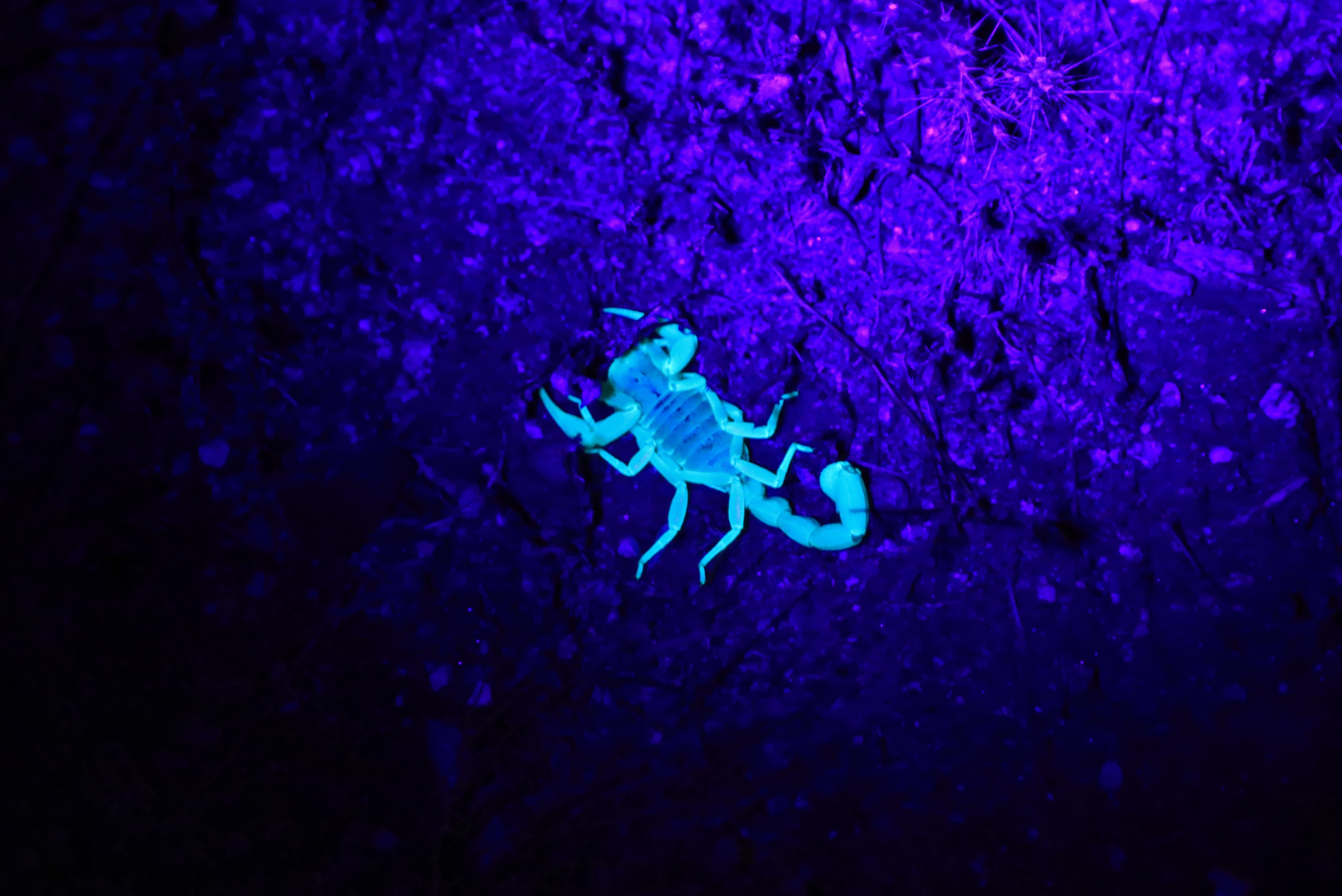Create a free profile to get unlimited access to exclusive videos, sweepstakes, and more!
Scorpions glow a fluorescent blue-green, perhaps to protect themselves from parasites
This invertebrate rave has been going on for 430 million years.

The Mummy Returns was a hotly anticipated sequel which brought our favorite Egyptian explorers Rick and Evelyn O’Connell, as well as their resurrected nemesis Imhotep, back to the big screen. It also brought us Mathayus of Akkad, otherwise known as The Scorpion King.
In the real world, scorpions aren’t horrifyingly rendered digital aRocknids, but they do have a pretty sweet super power. Under UV light, their exoskeletons glow a fluorescent blue-green. It’s unclear precisely why scorpions glow in the dark and what benefit it could provide them, but a new discovery might have unraveled at least a part of the mystery.
Masahiro Miyashita from the Division of Applied Life Sciences at Kyoto University was part of a team of researchers who discovered a new fluorescent compound in the molted exoskeletons – also called exuviae – of five scorpion species. Their findings were published in the Journal of Natural Products.
“Fortunately, since we had kept many scorpions for a long time for our venom research, we were able to collect many exuviae. From this material, we found new fluorescent compounds,” Miyashita told SYFY WIRE.
Using molted exoskeletons had the added benefit of ensuring there were no organic contaminants from inside the living bodies of the scorpions themselves. To isolate fluorescent compounds, scientists treated the exuviae with organic solvents. Prior to this work, there were two fluorescent compounds known in scorpion exoskeletons; researchers have now identified a third. Miyashita also stated it’s possible there are additional compounds still undiscovered, which are not soluble in organic solvents.
The newly identified compound is a phthalate ester, a structure often found in industrial products. For that reason, it was initially suspected its presence may have been the result of contamination during experiments, but further experiments confirmed that was not the case.
“It is unclear how this is biosynthesized. It is possible that many biologically-derived phthalate esters have been overlooked to date, because they are considered contaminants,” Miyashita said. “There is no doubt that fluorescent compounds are synthesized in the body. We cannot exclude the possibility that they are synthesized by other organisms such as symbiotic microbes.”
To date, researchers have looked at five scorpion species and found this new compound present in each of them. Consequently, Miyashita believes the compound is common to all scorpions. Moreover, it appears to have some health benefits to the scorpions, protecting them from fungal or viral infections. In fact, protection may be its primary purpose and fluorescence only secondary.
“Some reports suggest it contributes to communication between scorpions but there is no conclusive evidence. I am rather skeptical about this. I believe that fluorescent substances directly contribute to physical – and partially physiological – protection,” Miyashita said.
What is clear is that fluorescents – whether synthesized by the scorpions by themselves or symbiotic microbes – occur only in the exoskeleton. Meaning that, for a short time after each molting cycle, scorpions cease to glow in ultraviolet light.
“Scorpion fluorescence is strongly associated with the molting process. Immediately after molting, scorpions do not show fluorescence, but soon become fluorescent,” Miyashita said.
It might be that fluorescence emerges as the exoskeleton matures and could be a byproduct of that process. Researchers are continuing to study scorpions in hopes of fully unraveling the mysteries of their night-time glowing and how it might influence their social interactions and survival.
Looking back at 2001 and The Mummy Returns, we can’t help but wonder how the movie might have changed if the Scorpion King glowed under the faint light of the pyramid’s interior. Failing to light up The Rock in an eerie teal glow might have been a missed opportunity. If you’re going to put that character in a movie, you might as well shine a light on it.


























